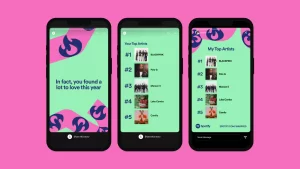Squid game hits a global homerun
Oct 24, 2021
Headlines, posts, and comments about the Korean television show “Squid Game” are everywhere. How has this come to be?
The Korean Netflix series “Squid Game” made its debut on Sept. 17 and almost immediately became a viral sensation. Comprising a total of nine episodes, the miniseries has reached massive success and is Netflix’s biggest show to exist to-date.
“Squid Game” is currently ranked first place on Netflix in more than 90 countries. Over 82 million Netflix subscribers have viewed the show within the first 28 days of its release. Providing subtitles in 37 languages and dubbing in 34 languages has allowed the television series to flexibly engage international audiences.
Many find the popularity of “Squid Game” astonishing. Individuals have been voraciously posting content on social media, to the extent where the hashtag “Squid Game” has been viewed more than 22.8 billion times on Tiktok.
Beyond the show itself, social media posts replicating the games featured within “Squid Game” have further propelled the show to reach a wider audience. In particular, a mission involving the traditional Korean candy dalgona in which contestants must carve out shapes in the sugary candy without breaking it has been popular.
The second-hand experience of being a part of “Squid Game” is providing a fulfilling time for those living mundane lives due to the COVID-19 pandemic. Recipes for dalgona have gone viral, and marketplaces have begun selling dalgona kits as well.
“Over the past few days, even my friends have been following recipes to make dalgona and cut out the shapes,” Sean Choi (11), a fan of “Squid Game,” said. “Especially because a number of people have been posting pictures, memes, and videos of themselves contributing to the trend, the popularity of the show is only increasing. As a Korean, I am excited to see that people around the world are appreciating Korean culture and experiencing it themselves.”
Pop up stores have opened in multiple countries, including France, England, and Korea, where users can purchase “Squid Game” merchandise. Online retailers have also created costumes that were worn in the show.
“I recently purchased the jumpsuit merchandise on Amazon because I thought that ‘Squid Game’ was a fun show,” James Fischer, a fan of ‘Squid Game,’ said. “The costume is simple yet something I could definitely have fun with. I was even able to choose a specific number plate that represents each participant, and I chose the number ‘240’ because it represents my favourite character Ji-yeong.”
Yet the secret behind the global success lies in its intricate plot line. The Korean show has been praised for its dystopian plot, excelling acting, and arresting visuals. “Squid Game ” revolves around the story of hopelessly indebted adults who are invited to play multiple rounds of traditional Korean children’s games.
The characters in “Squid Game” come from a variety of backgrounds. The age of the participants range between 20 to 80, and they all have different occupations, some of which include gambler, migrant worker, banker, and gangster.
Stranded on a secluded island, the underdogs go through a process of elimination in which the losers are killed after each game. Eventually, there will be only one winner left standing, and he or she will win 45.6 billion won, or around $40 million.
The themes and messages reflected in “Squid Game” resonate with a large group of viewers as it conveys problems in Korean society. Though Korea is one of the richest Asian countries, the issue of wealth disparity is prevalent. By involving characters from different economic statuses and illustrating contrasts between the rich and the poor, the show depicts the harsh reality of continuous precarity and desperation.
“What distinguishes ‘Squid Game’ from other dystopian shows is that there are a lot more messages involved.” Hana Jeon, a recent viewer of “Squid Game,” said. “However, as participants go through the struggle of trying to make the best decision in each game, the show teaches morals such as leadership, friendship, love, and family. This makes the series even more impressive and engaging to watch.”
Korean entertainment and lifestyle has been appreciated internationally, with the main source of clout being Korean beauty and K-pop. However, along with Korean movies such as “Parasite” and “Minari”, K-media is expanding with each passing day.
“After watching ‘Squid Game’ I knew it would be a hit, but I had no idea it would become such a global phenomenon,” Hannah Kim (12), an avid Netflix watcher, said. “I hope that through this show and opportunity, people will begin to overcome language barriers and learn to appreciate sources of entertainment from different nationalities.”







